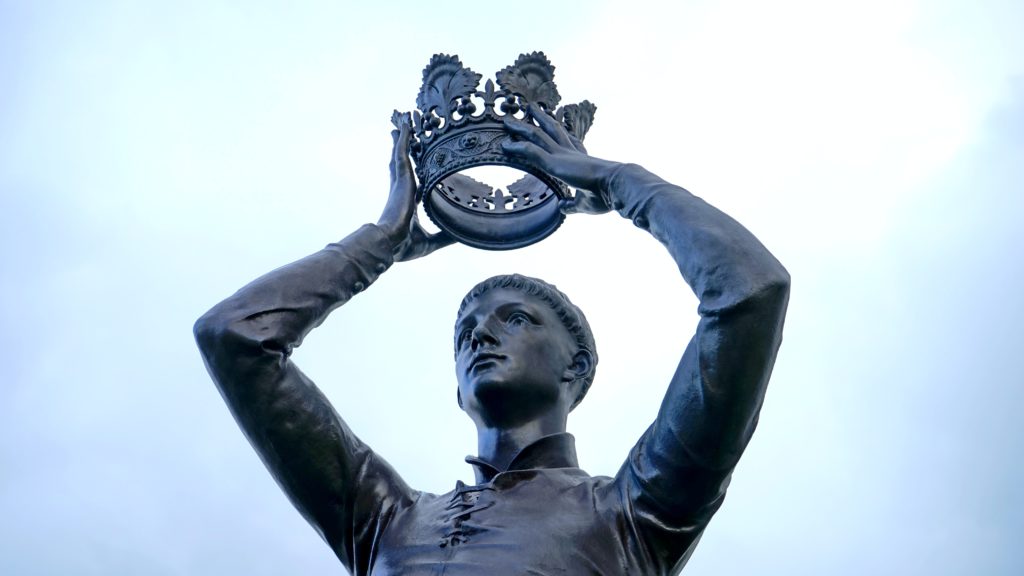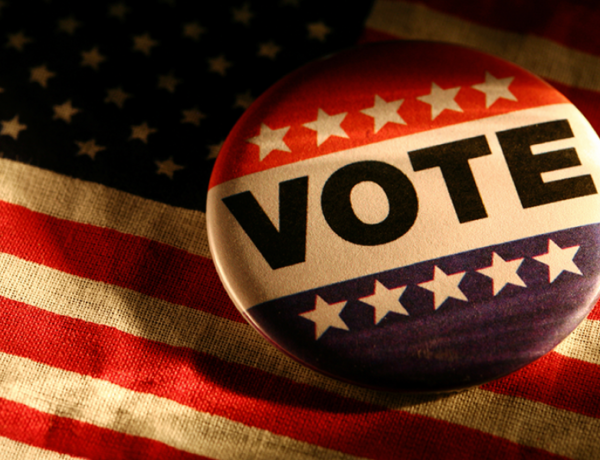What do you picture when you think of a king? Perhaps you see Henry VIII eating a feast while his subjects starve. Or perhaps you imagine mad old King George, imposing taxes on his American colonies to fund his lavish lifestyle.
America has always been deeply distrustful of kings. The Founding Fathers wanted to make sure that the United States never again fell under the rule of a king. They remembered not only King George but countless other English monarchs whose capricious and cruel policies curtailed their subjects’ liberty.

If that’s your image of kingship, you’re not alone. The image, however, does not express true kingship at all.
True Kingship
My personal image of true kingship comes from The Lion, the Witch and the Wardrobe: I see Peter, Edmund, Susan and Lucy each sitting on their own thrones at Caer Paravel. Peter was the High King, which meant that he worked with other, lesser Kings (and Queens) to rule Narnia. Far from being removed from the people he was ruling, Peter and the other kings heard the needs of the people and worked together to provide for those needs.
That is what true kingship entails. Not lording it over someone else, or getting fat while others starve, but using one’s power to serve those who are powerless.
A true king is not given authority; a true king earns his authority by serving his subjects.
Yet today those who call themselves “kings” in our society are not much more than overgrown boys with a superiority complex. Or sometimes, to borrow a phrase, an egomaniac with an inferiority complex.
So let’s get back to true kingship. A true king has the following characteristics:
- A true king does not ask others to do things he would not also do (or has done on his journey to becoming a king);
- A true king uses his power to serve others, not enslave them;
- A true king commands respect. Unlike those who demand respect, a true king’s actions show his respect for others and thus he commands respect from them;
- A true king does not make promises he cannot keep;
- A true king is not given authority; a true king earns his authority by serving his subjects.
- A true king takes full responsibility for his life.
I can hear what you’re thinking right now: “This is all great, but where are these true kings today?”. I’m glad you asked. Here are some true kings you can find if you look around today:
- The CEO who cuts his own salary so that those who work for him will be able to support their families and themselves;
- The father who works so that his children can have a better future than he did;
- The military leader who leads his men into battle knowing that they all might die so that the freedom of others will be preserved;
- The politician who works for the needs of his or her constituents over the needs of their own pocketbook or their own popularity;
- Anyone who works for a purpose greater than themselves, despite their own needs.
These are only a few examples. I’m sure you can find more when you start looking. Then the question arises: how does one become a true king today? The way it has always been done.
How to Become A True King
In order to become a true king, one has to have principles that guide one’s thoughts and actions. These principles have nothing to do with opportunism and everything to do with the four cardinal virtues of prudence, temperance, justice and fortitude.
Prudence enables the true king to distinguish the right actions to take.
Temperance is necessary to know how far to act. Without temperance a king may do more harm than good.
Justice is necessary in order to act within the bounds of propriety, neither withholding what is necessary nor giving into temptations that would impair a true king’s ability to lead.
Fortitude is necessary to persist with what is right even when it is inconvenient.
While the development of these four virtues are necessary for creating a meaningful life, the true king uses them also as a solid foundation on which to build his kingship.
These virtues aren’t meant to be abstract ideals. They are meant to guide your everyday thoughts and actions. So, when you are faced with a decision try using these principles to guide you as you deliberate.
Ask yourself: what is the right action to take in this situation, not just for me but for everyone involved? How much should I do, and how much should I leave for others? Am I doing this for the right reasons, or am I taking advantage of others?
Don’t be afraid to ask others for help, either. True kings don’t make unilateral decisions; they seek counsel. One counselor won’t do it, either; seek advice from many people — maybe even from people that are coming from a perspective that is totally opposite yours. When you’ve heard the advice, weigh it and test it with the four virtues described above. Then act.
If you do this consistently, you may not ever earn a crown. You won’t need one. You will be a true king.




